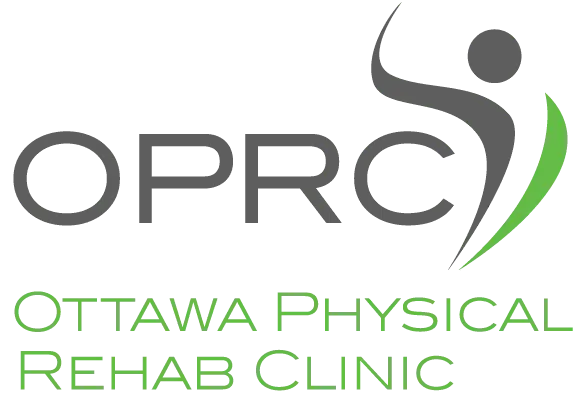
Physiotherapy is an essential component of recovery for individuals dealing with various physical challenges. It involves exercises and strategies designed to improve strength, mobility, and overall health. However, the journey doesn't end at the clinic; supporting physiotherapy at home is crucial for optimal results. In this blog, we will explore effective tips and lifestyle changes that can enhance your physiotherapy experience, as well as common mistakes to avoid and tools that can aid in your recovery journey.
What Lifestyle Changes Support Physiotherapy Treatment?
Implementing lifestyle changes such as improved nutrition, regular physical activity, and stress management can significantly support physiotherapy treatment. These changes not only enhance recovery but also promote long-term health and fitness.
- Balanced Nutrition: Adopt a diet rich in nutrients to support muscle repair and energy levels. Include plenty of fruits, vegetables, lean proteins, and whole grains.
- Active Living: Incorporate regular physical activity into your daily routine, beyond your physiotherapy exercises. This can include walking, swimming, or cycling to maintain overall fitness.
- Stress Management: Practice stress-reduction techniques like meditation or yoga. Stress can hinder recovery, so keeping it in check is beneficial.
- Adequate Sleep: Ensure you get enough restful sleep. Sleep is vital for muscle recovery and overall health.
- Avoid Smoking and Excessive Alcohol: Smoking and heavy drinking can negatively impact recovery. Reducing these habits can improve your progress.
- Hydration: Drink plenty of water throughout the day. Proper hydration supports all bodily functions, including muscle repair.
- Posture Awareness: Be mindful of your posture during daily activities to prevent unnecessary strain and support recovery.
Overall, integrating these lifestyle changes into your routine can significantly boost the effectiveness of your physiotherapy treatment, supporting long-term recovery and health.
What Role Does Sleep Play in Physiotherapy Recovery?
Sleep plays a crucial role in physiotherapy recovery by facilitating muscle repair, reducing inflammation, and enhancing mental well-being. During sleep, the body releases growth hormones that aid in tissue repair, making it a vital component of the recovery process. Adequate sleep also helps manage pain levels, as poor sleep can exacerbate discomfort and hinder progress. A well-rested mind is more capable of handling the mental challenges of physiotherapy, such as maintaining motivation and focus during exercises.
Quality sleep supports the immune system, which is essential for overall health and recovery. Establishing a consistent sleep schedule, creating a relaxing bedtime routine, and making your sleep environment comfortable can improve sleep quality. Avoiding screens before bed and limiting caffeine intake can also contribute to better rest.
In summary, sleep is a cornerstone of effective physiotherapy recovery, impacting physical repair, pain management, and mental resilience. Prioritizing good sleep habits is essential for maximizing the benefits of your physiotherapy regimen.
What Mistakes Should Be Avoided While Supporting Physiotherapy?
Avoiding mistakes such as neglecting prescribed exercises, overexerting oneself, and ignoring pain signals is crucial in supporting physiotherapy. Addressing these common errors can significantly improve recovery outcomes.
| Neglecting Exercises | Skipping exercises can delay recovery. Ensure you follow the physiotherapist's plan consistently to achieve the best results. |
| Overexertion | Pushing too hard can lead to injury. It's important to listen to your body and rest as needed. |
| Ignoring Pain Signals | Pain is a warning system. If you experience pain during exercises, consult your physiotherapist to avoid worsening your condition. |
| Poor Communication | Failing to communicate with your physiotherapist can hinder progress. Keep them informed about any changes or challenges you face. |
| Inconsistent Routine | Irregular exercise routines can disrupt progress. Consistency is key to successful physiotherapy. |
| Unhealthy Lifestyle Choices | Poor dietary habits and lack of sleep can impede recovery. Maintain a healthy lifestyle to support your physiotherapy efforts. |
| Not Setting Realistic Goals | Setting unattainable goals can lead to frustration. Work with your physiotherapist to set achievable milestones. |
In brief, avoiding these common pitfalls ensures a smoother and more effective physiotherapy journey, aiding in a quicker and more successful recovery.
How Important Is Diet and Hydration in Supporting Physiotherapy?
Diet and hydration are fundamental in supporting physiotherapy by providing the nutrients and fluids necessary for muscle repair and energy production. A nutritious diet helps maintain energy levels, which is crucial for performing exercises effectively. Proteins are particularly important as they aid in rebuilding muscle tissue. Carbohydrates provide the energy needed for physical activity, while fats help in hormone production and cell health.
Hydration is equally critical, as water is essential for transporting nutrients to cells and removing waste products. Dehydration can lead to muscle cramps, reduced endurance, and slower recovery. Consuming adequate fluids, particularly water, throughout the day is necessary for optimal performance and recovery.
Bottom line, maintaining a balanced diet and proper hydration supports the body's natural recovery processes, enhances performance during physiotherapy, and contributes to overall health.
What Is the Role of Movement and Exercise in Supporting Physiotherapy?
Movement and exercise are integral to supporting physiotherapy, enhancing strength, flexibility, and overall function. Engaging in regular, targeted exercises as prescribed by your physiotherapist can significantly aid recovery.
- Improves Flexibility: Consistent stretching exercises can help improve flexibility, reducing the risk of injury and supporting joint health.
- Builds Strength: Strengthening exercises target specific muscle groups, helping to restore muscle mass and improve overall physical function.
- Enhances Mobility: Regular movement helps maintain joint mobility, essential for performing daily activities with ease.
- Boosts Circulation: Exercise promotes better blood flow, which is crucial for delivering nutrients to tissues and aiding in repair processes.
- Supports Mental Health: Physical activity releases endorphins, which can improve mood and reduce stress, supporting overall health.
- Prevents Deconditioning: Staying active prevents muscle atrophy and deconditioning, which can occur during periods of inactivity.
In summary, movement and exercise are foundational elements of physiotherapy, supporting physical recovery and mental well-being, and preventing further injury.
How Can You Track Progress During Physiotherapy?
Tracking progress during physiotherapy is vital for understanding improvements and making necessary adjustments. Methods such as journaling, using apps, and regular assessments can help monitor your development. Keeping a journal to record daily exercises, pain levels, and any changes in mobility can provide valuable insights into your recovery process. Apps designed for physiotherapy can offer structured ways to log progress and set reminders for exercises.
Regular follow-ups with your physiotherapist allow for professional evaluations and adjustments to your treatment plan. Tracking progress not only helps in assessing the effectiveness of the treatment but also keeps you motivated by highlighting improvements over time.
In short, consistent tracking through various methods supports a clear understanding of your progress, helping to sustain motivation and guide treatment adjustments.
How Can You Modify Daily Activities to Support Physiotherapy?
Modifying daily activities to support physiotherapy involves making conscious adjustments to reduce strain and promote recovery. These changes can significantly enhance the benefits of your physiotherapy treatment.
- Ergonomic Adjustments: Ensure your workspace and home environment are ergonomically designed to reduce strain on your body.
- Mindful Movements: Be conscious of how you move during daily tasks, avoiding unnecessary strain and using proper techniques.
- Scheduled Breaks: Incorporate regular breaks into your routine to prevent overuse injuries and allow for recovery.
- Assistive Devices: Use tools like braces or canes if recommended by your physiotherapist to support mobility.
- Delegating Tasks: Don’t hesitate to ask for help with physically demanding tasks to prevent injury.
- Stretching Routines: Integrate short stretching sessions into your day to maintain flexibility.
- Footwear Considerations: Wear appropriate shoes that support your feet and posture.
Key takeaways: Modifying daily activities with mindful changes can significantly aid recovery, reduce strain, and complement your physiotherapy efforts.
Are There Tools or Equipment That Help Support Physiotherapy?
Several tools and equipment can support physiotherapy by enhancing exercises and aiding recovery. Utilizing resistance bands, foam rollers, and balance boards can complement your physiotherapy routine.
| Resistance Bands | These are versatile tools that help in strengthening exercises, targeting specific muscle groups effectively. |
| Foam Rollers | Useful for self-myofascial release, foam rollers help reduce muscle tightness and improve flexibility. |
| Balance Boards | These tools can enhance balance and coordination, which are often key goals in physiotherapy. |
| Therapy Balls | Exercise balls are excellent for core strengthening and improving posture. |
| Ankle Weights | Adding weights to exercises can increase intensity, aiding in muscle strengthening. |
| Posture Correctors | These can help maintain proper alignment during daily activities. |
| Cold and Heat Packs | Useful for managing pain and inflammation, these packs can be used as part of your home care routine. |
In brief, using the appropriate tools and equipment can enhance the effectiveness of physiotherapy, providing targeted support and facilitating recovery.
How Can You Stay Motivated During Physiotherapy?
Staying motivated during physiotherapy can be achieved by setting realistic goals, tracking progress, and finding a support network. These strategies can help maintain enthusiasm and commitment throughout your recovery journey.
- Set Achievable Goals: Break down your recovery into smaller, attainable milestones to keep motivation high.
- Celebrate Progress: Acknowledge and celebrate small victories to maintain a positive outlook.
- Find a Support Network: Engage friends, family, or support groups to encourage you and share your journey.
- Visualize Success: Picture yourself achieving your goals to stay focused and inspired.
- Vary Your Routine: Keep your exercises interesting by introducing new activities or challenges.
- Stay Educated: Understanding your condition and the benefits of physiotherapy can boost your commitment.
- Use Technology: Fitness apps and trackers can provide reminders and track achievements, helping you stay on course.
Bottom line, motivation can be sustained through setting goals, celebrating progress, and leveraging support systems, ensuring a successful physiotherapy experience.
Maximize Recovery, Minimize Pain
Physiotherapy is a vital component of recovery, but its success often depends on the support provided outside of the clinic. By incorporating lifestyle changes, avoiding common mistakes, and utilizing the right tools, individuals can enhance their physiotherapy outcomes.
For those seeking personalized support, Ottawa Physical Rehab Clinic offers comprehensive physiotherapy services tailored to meet your unique needs. Contact us today to embark on your journey towards improved health and recovery.
Frequently Asked Questions
What Are the Benefits of Physiotherapy?
Physiotherapy offers numerous benefits including improved mobility, reduced pain, and enhanced physical function. It can aid in recovery from injuries, manage chronic conditions, and prevent future injuries by strengthening muscles and improving flexibility.
How Often Should I See a Physiotherapist?
The frequency of physiotherapy sessions depends on the individual's condition and recovery goals. Typically, sessions may range from once a week to several times a week, as determined by your physiotherapist to maximize progress.
Can Physiotherapy Help with Chronic Pain?
Yes, physiotherapy can be highly effective in managing chronic pain. Through targeted exercises, manual therapy, and education, physiotherapists can help reduce pain, improve function, and enhance quality of life for individuals with chronic pain conditions.
What Should I Wear to Physiotherapy Sessions?
Wear comfortable, loose-fitting clothing to physiotherapy sessions. It's important to have a full range of motion for exercises, so athletic wear or casual, stretchy clothes are recommended to facilitate movement during your session.
Do I Need a Referral to See a Physiotherapist?
In most cases, you do not need a referral to see a physiotherapist. However, certain insurance plans may require a referral for coverage purposes. It's advisable to check with your insurance provider and physiotherapy clinic for specific requirements.

